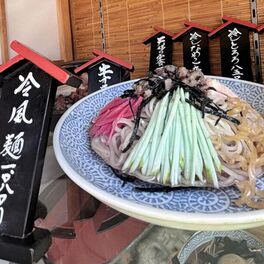Recent escalation in inflation has forced several restaurants in Japan to stop serving a summer staple - Cold Chinese noodles, or "Hiyashi Chuka". With the prices of essential food items on the rise, it's become cost-prohibitive for many establishments to continue offering this dish. This development has occurred amidst broader economic concerns in Japan, and is indicative of struggles within the country’s foodservice sector.
The serving of Hiyashi Chuka in summer is a deep-rooted tradition in Japan and is highly valued by consumers for its affordable price. Yet as high inflation affects commodity prices, it ultimately impacts the day-to-day activities and eating habits of citizens. People are increasingly concerned about the effect on the cost of living and how it may change traditional practices within the culinary industry.
In the U.S. or EU, increasing prices and inflation similarly have negative effects on local businesses and consumer habits. Many restaurants are forced to adjust menu options or prices, and sometimes even close down due to unsustainable operating costs. However, the cultural context adds another layer to the situation in Japan, as traditional food practices are heavily ingrained in societal norms.

